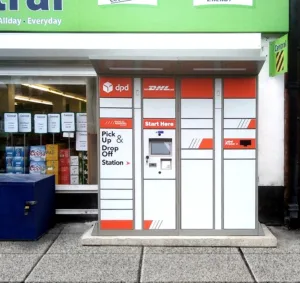By Martijn Zoetebier, Group Director Business Development, Linehub
As we face a future of increasing economic uncertainty, businesses need marketing to create even more certainty. Indeed, recent studies have revealed that marketing effectiveness is gaining ground on the corporate agenda, and that demand for effectiveness is only going to grow.
The marketers that will lead the way are the ones that will deliver certainty about the outcome of every single marketing action that they undertake for their brands. That’s why I believe that the use of affiliate marketing will become a significant approach for marketers wishing to speed their path towards certainty.
Certainty in ecommerce
The demand for certainty is perhaps at its most pronounced within the ecommerce space, where brands are perpetually struggling to achieve return on investment, and where the competition is constantly challenging.
That’s why ecommerce marketers should be demanding a whole lot more from their martech ecosystem and tech stack. Such service providers should be providing certainty about where demand exists; certainty that marketing investment will convert to immediate sales and long-term growth; and certainty that every step in the marketing process will optimise every single euro invested.
Certainty means different things within different marketing disciplines, as each has its own capabilities. But performance marketing techniques such as affiliate marketing can offer a very literal sense of certainty – because you only pay for actual sales, making it a highly cost-effective channel for customer acquisition.
Affiliate marketing offers an opportunity for brands to increase their sales and grow their market share by partnering with high-quality blogs, social media platforms, podcasts, and websites that actively recommend and promote their products to their following.
The beauty of such a scheme is that the affiliate partner is only rewarded when they provide a specific result such as a sale for the retailer or advertiser. This offers improved certainty via a transparent and straightforward model where ecommerce only pays for actual sales.
Let’s look at this by breaking certainty of marketing into its three key pillars: certainty of reach; certainty of knowledge; and certainty of results.
Certainty of reach
For ecommerce brands, the imperative in these turbulent times is to match supply with demand. But at the same time, it is getting harder – and more expensive – to reach the ideal customer. That’s why brands need to work with partners that can deliver certainty of reach.
Ask yourself the following questions: How certain are you about where the demand exists for your product or service? How certain are you that you have found the right channels for reaching that potentially lucrative market? And how certain are you that once you’ve reached that market, the messaging that you are using will be perfectly honed to grab their attention?
Affiliate marketing is one way to answer “Very!” to all three questions, because it allows ecommerce brands to reach customers at scale. By partnering with the blogs, social media platforms, podcasts, and websites that are entirely relevant to their business, ecommerce brands can tap into that publisher’s audience – an audience that may have taken years to build – in a matter of moments.
Certainty of knowledge
Local market knowledge and expertise is crucial when it comes to testing new channels and campaigns you haven’t used before. That’s why it’s important to hire the right partners and agencies that can deliver certainty of knowledge.
The experts in your marketing ecosystem need a 360-degree set of capabilities, and all of these capabilities need to be focused on the objective of constant optimisation. For instance, a campaign element may need to be changed because the current one is not resonating well. The team needs to be able to respond to this challenge and make the appropriate changes quickly, and then be able to measure the result.
Marketers need access to experts that have the capability to provide this kind of continuous test-and-learn approach to unlock return on investment as quickly as possible. In the case of affiliate marketing, this means having in-country experts that have access to detailed historical data on publishers, so that they can provide guidance on exactly the right affiliate brands to partner with. In this evidence-led way, brands can craft their strategy based on the right partners and the outcomes that can be expected. Nothing should be left to chance.
Certainty of results
With certainty of reach and certainty of knowledge in place, both will help to drive certainty of results. And affiliate marketing succeeds – it is the highest rated channel for customer acquisition and a critical revenue driver. 20% of all marketers that use affiliate as part of their marketing mix refer to it as their top channel for customer acquisition, followed by paid and organic search (16%) and display (15%).
But it’s also important to remember that when we talk about results, we might not always mean successes. A result may also be a negative – not every campaign works first time. The outcome should drive you forward towards improved results in future. That’s the benefit of working with an expert affiliate marketing partner – by using that continuous test and learn approach, they will know if a campaign is working quickly, enabling them to unlock success with less wasted time.
Conclusion
In these uncertain times, all brands need to demand much more certainty from their partners, agencies and tech stacks. If you are meeting with such a supplier any time soon – be if for affiliate marketing or any other discipline – ask them what kind of certainty they can deliver, and carefully note how they respond.







